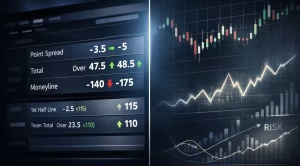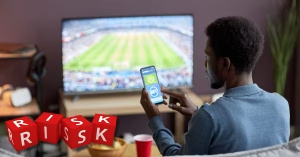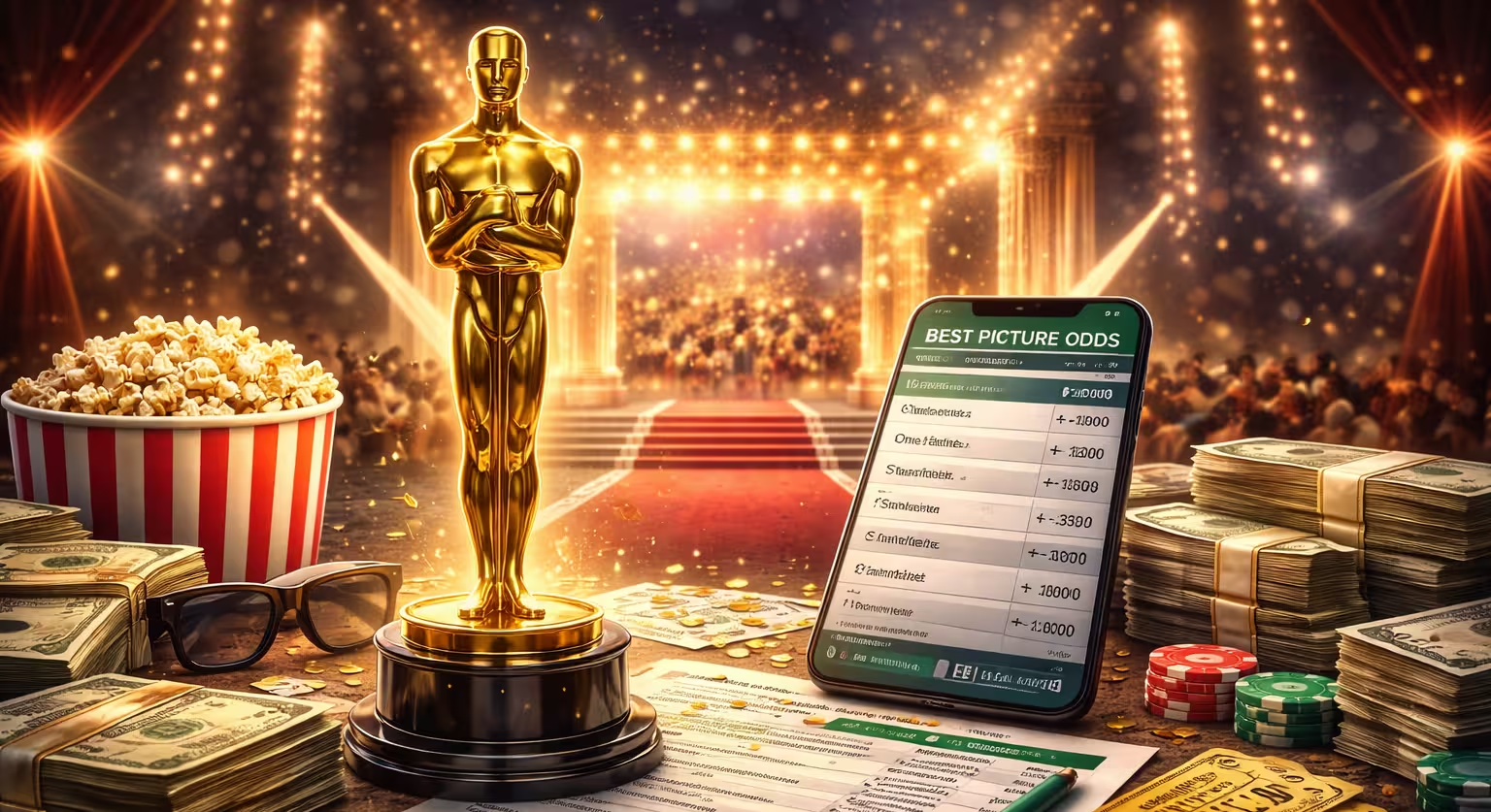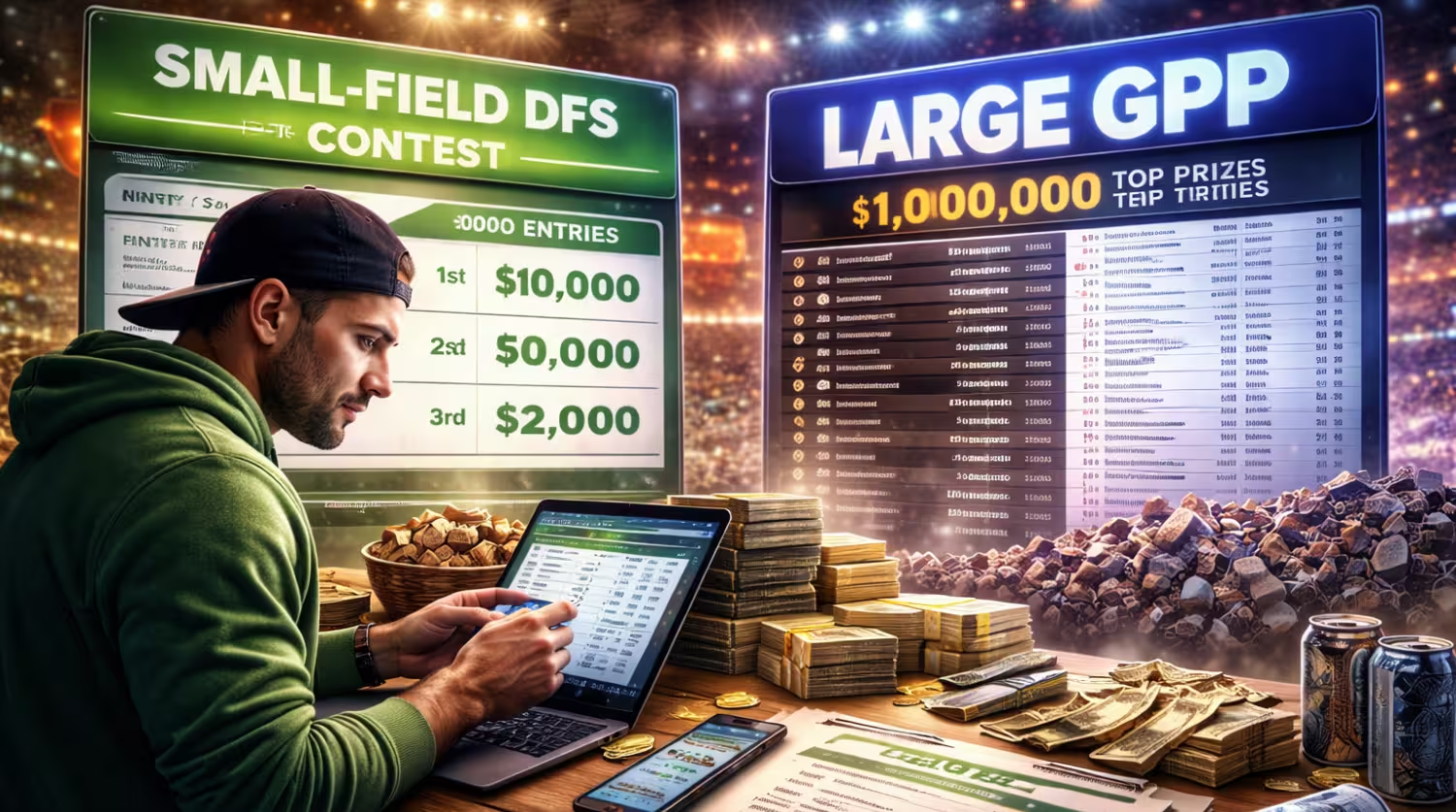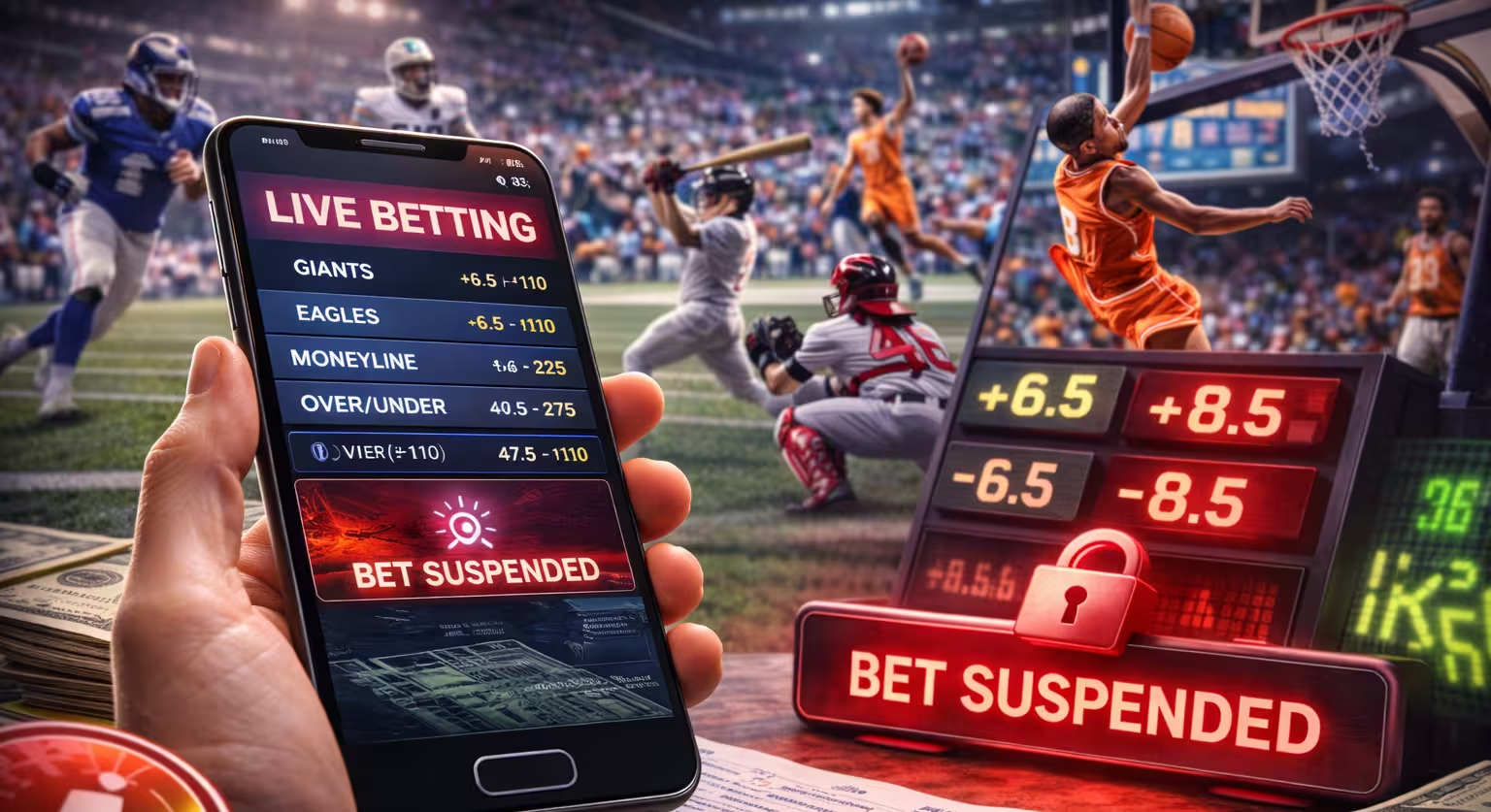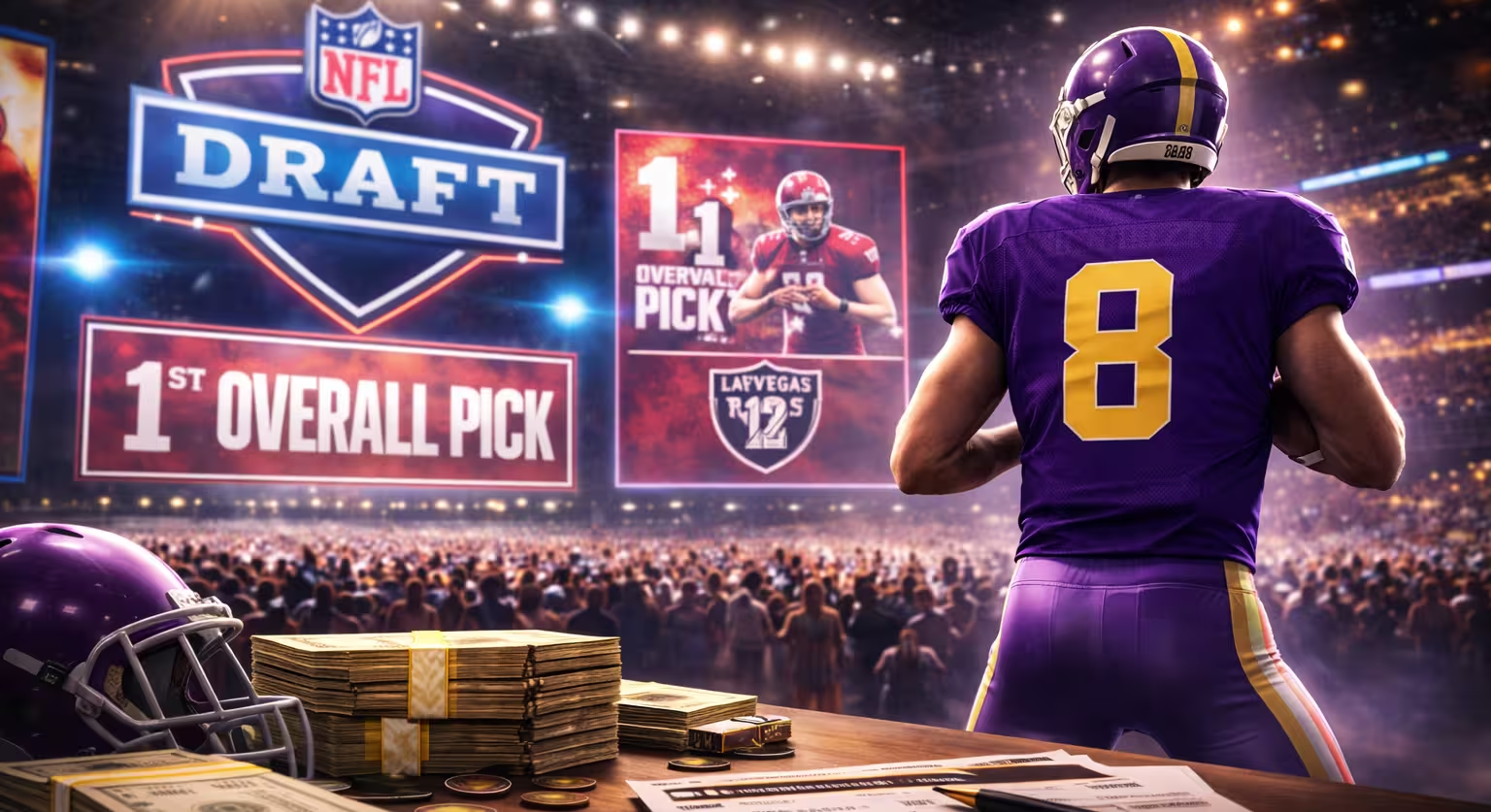The Psychology of Quitting While You’re Ahead in Gambling
When you’re gambling and you win, there isn’t much that tops that feeling. You won money!! Look at you! And sometimes it’s a BIG win. You are making out like a bandit, and your stack of chips or your account balance is up. Like, way up.
You’d think after a big win, you’d bounce with your profit, right? In a perfect world, yes. But we aren’t perfect creatures, and there’s an angel on one shoulder and a devil on the other. What’s the angel saying? “Take your money and go!” But the devil is saying, “Why would you quit? You could make even more money!”
Do gamblers listen to the angel? Erm, most of them don’t. We listen to the devil, which sounds rational. Because the more you win? The harder it can be to stop. And when we listen to the little devil, we run the very high risk of turning into a cautionary tale of losing all we won because we didn’t quit while we were ahead.
Why is it so hard to walk away when you’re winning? The answer isn’t because we’re greedy or don’t have the willpower. Nope! That devil on your shoulder is your psyche, and it’s telling you to keep betting even when logic (and your plan) says to take the money and run.
There’s a lot of psychology behind why “quitting while you’re ahead” is so dang hard, but you can get better at it! It’s mind over matter, and we are going to look at the cognitive biases that lure you into “just one more hand,” what’s happening in your brain chemistry during a winning streak, and the emotional traps that make walking away feel like you are glued to your seat (or screen).
The Siren Song of ‘Just One More’: Cognitive Biases at Play
Even when you know on a basic level that it’s smart to stop, there are several cognitive biases that can derail that instinct, and they skew our decision-making and can trap all kinds of gamblers into pushing their luck. Let’s find out what they are and why they make it so hard to let go of a winning streak.
Confirmation Bias
Confirmation bias is our brain’s tendency to favor only the information that validates our existing beliefs and ignore any evidence that contradicts them. And in gambling, this means remembering your wins and conveniently forgetting your losses.
A couple of wins can fool you into thinking you’ve beaten the game or developed a foolproof “system,” which causes you to dismiss the times when things didn’t work out. As a result, a gambler on a hot streak will genuinely believe “I knew what I was doing all along,” and that reinforces the confidence to keep betting.
Problem gambling counselors observe that people will focus on a past win and gloss over the losses. Someone could lose $1,000 and win $100, but they recall the $100 victory in vivid detail while the larger loss just fades away. Selective memory feeds the idea “I won before, so I can win again,” even when, rationally, the overall balance is negative.
Dr. Mark Griffiths, a professor of behavioral addiction, says that gamblers seek out “proof” that their hunches or superstitions are working and ignore the times they were wrong, and that’s confirmation bias at work. This bias can build an illusion that you’re a skilled or lucky player, and that makes it harder to accept that quitting (and possibly missing out on a “sure win”) is the right move.
The Near-Miss Effect
Have you ever been one number away from a lottery win or one symbol off from a jackpot on a slot machine? That heart-stopping near miss can feel almost as good as a win, and that’s precisely the problem.
The “near-miss effect” tricks your brain into interpreting almost winning as winning. Psychologically and even neurologically, near misses keep you hooked on the game by triggering a surge of optimism and excitement, convincing you that you’re this close to hitting the real thing.
The science backs this up, and Neuroscientist Dr. Luke Clark and colleagues at Cambridge found in an fMRI study that when gamblers experienced near misses on a slot machine, it activated the same reward pathways in the brain as an actual win would. Your brain releases dopamine (the feel-good neurotransmitter that’s tied to rewards) nearly as if you’d won, even though you lost the round.
“These findings are exciting because they suggest that near-miss outcomes may elicit a dopamine response in the more severe gamblers, despite no actual reward being given,” Dr. Clark explained, and it may help explain why problem gamblers find it so difficult to quit after a near miss.
Another expert, Dr. Matthew Roesch, said that the dopamine spikes during near misses can fuel the false perception that a game of pure chance involves skill or that a win is “due,” further encouraging players to continue.
Casinos and game designers are all too well aware of the near-miss effect. Slot machines are programmed to show frequent near misses (like two jackpot symbols lined up just shy of the payline) to give players that “I almost had it!” feeling. The result is a really powerful emotional hook. You feel invigorated by coming so close and think, “If I was that near a win this time, I just need to try again.” It becomes exceedingly hard to walk away when your brain is treating almost winning as a sign that a real win is right around the corner.
The Illusion of Control
Another mental trap that keeps gamblers pressing their luck is the illusion of control, which is the false belief that you can influence random outcomes. When you’re on a winning streak, this illusion can be super strong. You could start to believe that you have a special touch or strategy: the way you roll the dice, the lucky shirt you’re wearing, or the “system” you use to pick roulette numbers is giving you an advantage. But games of chance are just that; they are governed by chance. But the feeling of control can be compelling and dangerous, causing you to take bigger risks under the assumption that you’re somehow directing the outcome.
Psychology experiments by Ellen Langer in the 1970s first identified the illusion of control in gambling. In one example, participants who were allowed to choose their own lottery numbers (rather than being assigned numbers) felt more confident and demanded higher prices to sell their ticket, as if their choice imbued the ticket with better odds.
In modern casinos and on gambling sites, the illusion shows up in a few forms. Craps players will throw the dice harder when they are aiming for high numbers and softer for low numbers, subconsciously believing their throwing technique affects the result. Slot machine players might insist on pressing the button themselves at just the right moment, thinking it increases their chances of winning. And sports bettors can feel that their deeply researched knowledge of the game guarantees a win; they overlook how many external factors are out of their hands.
This bias tends to grow when you’ve had some wins. A few successful outcomes can create overconfidence, making you think, “I’m on to something here; I’ve figured out how to beat this game.” You may have just been lucky, but the illusion of control leads you to credit your skill rather than chance. Research highlighted by Dr. Roesch notes that dopamine from near wins and wins can reinforce this illusion, supporting the misconception that games of pure luck have a controllable aspect.
The end result? You feel justified in continuing to play because you “feel” like you can keep the streak going by sheer will or technique. This makes the idea of stopping while ahead feel not only unsatisfying, but almost wasteful, like you’d be squandering your “talent” or failing to capitalize on your supposed control over the game.
Chasing Gains (The Reverse of Chasing Losses)
We’ve all heard of gamblers “chasing losses,” which is when someone keeps gambling to win back money they’ve lost. But there’s a reverse to this: chasing gains. When you’re up, you start thinking about how to turn that win into an even bigger win. The first success moves your goalposts, and that $500 profit feels like just the beginning, and you start chasing a higher high.
This is a less-discussed aspect, but it’s extremely common, and some studies suggest that continuing to gamble after a win (to chase even more wins) happens more frequently than chasing losses does. You’re letting good fortune fuel new ambitions, which can cause the same destructive spiral as chasing losses, just from the opposite direction.
Why do gamblers chase gains?
- One reason is a shift in perspective. After a win, especially a big one, the money feels like “house money.” It’s not your money, but the casino’s money that you’re temporarily ahead with. Behavioral economists refer to this as the house money effect: people become more willing to take risks with money they didn’t expect to have. If you’ve doubled your bankroll, you rationalize more reckless bets by thinking, “I’m playing with the house’s money now, so even if I lose, I’m just giving back winnings.” This mindset lowers your normal inhibitions and loss aversion. Psychologically, losing some of the winnings doesn’t “hurt” as much as losing your original money, which makes it really easy to keep betting big.
- Another factor is called the gambler’s conceit. When you’re riding high on a gain, you tell yourself you’ll have the discipline to stop after the next win. But with each additional win, the temptation to set a new target grows. Behavioral scientist Dr. Peter van Gorsel says that a gambler really does believe they will quit soon, but they stay in the game because each win encourages them to keep going. Success breeds its own form of chasing: the more you succeed, the more you crave greater success.
Modern gambling data also backs this up. A 2024 analysis of online casino behavior in British Columbia found that players tended to come back faster after a win than after a loss, indicating that a win spurred more gambling sessions (a clear sign of “win chasing”). In practical terms, if you won today, you’re more likely to log in again tomorrow or next week to try for another payday, whereas a big loss will slow you down (at least for a while).
Your Brain on a Winning Streak: Neurochemical Explanations
Winning not only feels good psychologically; it feels good biologically. When you’re on a winning streak, your brain is quite literally under the influence of its own chemicals. That rush of hitting a big payout or a series of successful bets? It sets off a cascade of neurotransmitters and hormones that affect your judgment and behavior. Your brain chemistry changes when you win, and a gambler’s brain on a hot streak is intoxicated, not by a substance, but by its own internal rewards!
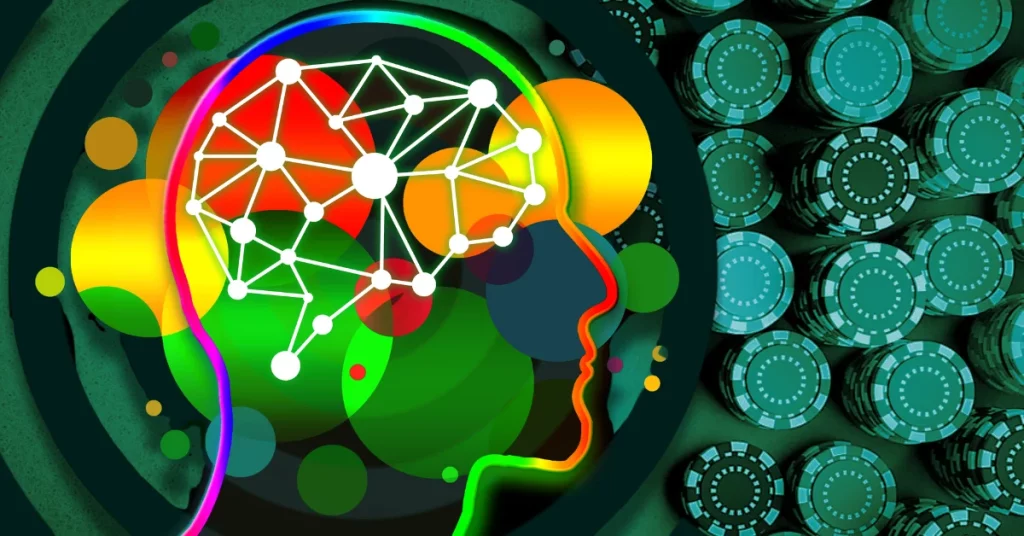
At the center of the neurochemical explanation is dopamine, which is dubbed the brain’s “reward chemical.” Dopamine is released whenever we experience something that’s pleasurable or fulfilling, and it’s a main part of the brain’s reward system that reinforces behaviors. Gambling is notorious for triggering surges of dopamine in the brain, especially during wins. The way gambling activates the reward circuitry is comparable to drugs in how strongly it can affect the brain’s chemistry. Each win delivers a shot of euphoria, courtesy of dopamine, which teaches your brain to repeat whatever behavior preceded the reward; to keep gambling in this scenario.
According to addiction specialists, this dopamine-fueled high is called the “winner’s high.” The Algamus Gambling Treatment program describes it like this: gambling “triggers the brain’s reward system” and releases dopamine into the body. That’s why a win feels so good; your brain is giving you a chemical pat on the back. The problem is that this reward system becomes overactive and unbalanced in people who gamble frequently.
You can develop a tolerance, and the brain’s reward system gets less sensitive to dopamine. The Gateway Foundation, which treats gambling addiction, explains that when someone gambles more, the brain starts to build up a tolerance for the dopamine released. A win that used to give you a big rush may no longer be enough, and that can cause you to seek out bigger and riskier bets to get the same high.
Neuroscientist Dr. Luke Clark’s research provides a vivid picture: in problem gamblers, near misses (which aren’t wins) can produce a dopamine spike, as we talked about earlier. That means a gambler’s brain will start rewarding them for almost winning, pushing them to continue playing. And when a win does happen, the dopamine hit is even stronger. If you have a series of wins, your brain is bathing in dopamine and other stress hormones, creating a potent neurochemical cocktail of excitement, focus, and confidence.
While that feels amazing in the moment, it severely skews your decision-making, and you become oriented toward seeking more reward above all else. The rational part of your brain (the prefrontal cortex), which handles long-term planning and restraint, gets overridden by the overwhelming “do it again!” signals that are coming from the reward system.
What gamblers describe as feeling “hot” or being “in the zone” after wins is closely tied to that dopamine rush. A “winner’s high” isn’t a metaphor; it’s a genuine physiological state. Heart rate and adrenaline increase, and your mood and confidence spike. This is also called the hot hand feeling: every shot you take, every card you play, seems destined to win.
But that winner’s high clouds judgment, and a surge of confidence ,can turn into overconfidence. From a cognitive standpoint, your brain begins to expect success because it’s temporarily associating your recent actions with huge rewards. It’s the same reason people in casinos will raise their bets after winning; they feel a momentum or “heat” that isn’t there statistically.
There’s also an emotional dimension: euphoria. Winning money triggers joy and excitement, obviously. But in gambling, euphoria can be magnified by the element of risk and relief. You took a chance, and it paid off, and that’s a powerful emotional reward. The combo of dopamine-driven confidence and emotional euphoria compels a lot of gamblers to continue despite logically knowing they should quit. The winner’s high wants you to prolong the ride as long as you can.
When you’re basking in a winner’s high, your perception of risk changes dramatically; as your winnings pile up, the potential downside of continuing feels smaller and the upside feels larger.
Part of this is due to the house money effect we talked about; you mentally segregate your original money from your winnings. The winnings don’t feel “real” or hard-earned, so wagering them doesn’t have the same weight as wagering your paycheck. Economist Richard Thaler, in his work on mental accounting, observed that people are far more willing to take bold risks with money they consider a gain or a bonus, precisely because losing that money doesn’t hurt their sense of wealth or security in the same way.
Why Walking Away Feels Like Losing: Emotional & Cognitive Barriers
If quitting while ahead were purely a logical decision, more people would do it. But emotions run high in gambling, and those emotions can make the act of walking away with your winnings feel surprisingly negative, almost like a loss in itself.
Gamblers have reported a strange mix of feelings when they consider cashing out: a fear of missing out on the next win, a sense of “I’m on top of the world, why stop now?”, and regret before any regretful thing has happened. Our minds can play tug-of-war between the rational knowledge that “I should quit now” and the emotional voice that’s yelling, “Don’t quit, you’ll miss the big one!” What are the barriers that make the right decision feel like the wrong one?
Greed and Euphoria
Let’s call a spade a spade: greed. In the context of gambling, it means riding the wave of euphoria and wanting that rush to continue. When you win, especially if it’s a life-changing or a big amount, it’s human nature to think about how more money could be even better. And it’s not coming from a place of malicious avarice! It’s fueled by the euphoria of winning.
Neuroscientist Antonio Damasio said, “We are not thinking machines that feel, we are feeling machines that think.” This is doubly true when that euphoria hits, it overrides rational thinking. The intense pleasure of victory can blind you to the smart decision, which would be to lock in the win.
Your brain’s reward circuits are lighting up and telling you how great it would be to experience this feeling over and over again. Greed in this sense is the opposite of satisfaction; you’re not satisfied with the current win because you’re already envisioning the next one. It’s really important to recognize this state: if you notice you’re feeling overjoyed and invincible after a win, that’s when you should be cautious, because those emotions probably compromise your decision-making.
Fear of Missing Out (FOMO)
The fear of missing out isn’t only induced by social media; it’s happening in casinos and online gambling apps. FOMO manifests as a nagging anxiety: “What if I leave now and the very next hand/spin/race would have been the big one?” This fear is super strong when you’re ahead, because you have evidence that “wins are happening!” and you don’t want to miss the next win. Walking away while you’re ahead can trigger the FOMO thoughts.
Casinos exploit FOMO in various ways, like sportsbook apps and online casinos that show players “trending bets” or recent big winners on the screen. Seeing that hundreds of others are placing a certain bet creates an impulse that you should jump on it too, or else you’ll miss out.
Emotionally, FOMO is tied to anticipated regret. You’re pre-living the scenario where you quit and would have won big if you’d stayed and felt that regret in advance. It’s a kind of loss aversion, but about losing an opportunity rather than real money.

The irony is that by trying to avoid the hypothetical regret of missing a win, gamblers incur the very real regret of losing money they had already won. FOMO is a deceptive emotion in gambling; it makes the status quo (keeping your profit) seem like a missed opportunity and continuing to gamble seem like it’s the safe or smart choice, so you won’t “miss out.”
Cognitive Dissonance
Cognitive dissonance is the mental discomfort we experience when we hold two conflicting thoughts or beliefs at the same time. In the context of quitting while ahead, it shows up as the devil and angel on our shoulders, one saying, “You really should stop now,” and the other saying, “You should keep going.” If you went into a gambling session with a plan (“If I win $250, I’ll cash out”) and then you hit that target, one part of your mind starts sounding the alarm to leave. But if another part of you is still craving action or convinced of continued luck, you’ll feel tension. To resolve that tension, gamblers will make rationalizations to keep playing.
Cognitive dissonance can also happen after you leave. If you do summon the will to quit while you’re ahead, and later on you see someone else win or hear that your numbers came up in the next game? That hindsight can cause dissonance with your earlier decision to quit. To cope, some gamblers fall into another trap: they convince themselves that leaving was a mistake and vow not to “miss out” next time (looping back into FOMO).
Lack of Pre-Commitment
One practical but super important factor that makes quitting while ahead hard is not having a pre-defined exit strategy. If you go into a gambling session without clear limits, like a profit goal or a time limit, you leave the decision of when to stop entirely to your in-the-moment self, who is subject to all the biases and emotions we’ve gone over. In the heat of a winning streak, your in-the-moment self is the last person you want determining when to leave. That version of you is high on dopamine and likely to keep pushing the boundaries.
Some gamblers don’t set a profit limit at all! It’s common to decide on a loss limit, but when people are winning, they aren’t thinking about stopping.
Gambling researcher Dr. Michael Auer states that having clear personal limits is a cornerstone of responsible gambling, and all legit gambling apps have pre-commitment tools for players. But gamblers have to choose to use them; the absence of using these tools or personal rules means you’re making decisions on a whim in an environment that is designed to make you lose track of time and judgment.
Mastering the Exit: Actionable Strategies for Discipline
Quitting while you’re ahead is hard for very real psychological and neurological reasons. But it is possible to get better at it and to make it a more natural part of your gambling habits! You can practice and improve.
Below are some actionable strategies that gamblers use to implement structure around play and ways to leverage smart psychology to counteract the biases and urges.
Set Clear Limits Before You Start
One of the golden rules of responsible gambling is “set limits and stick to them.” This applies not only to how much you’re willing to lose, but also how much you want to win and how long you will play. Before you make your first bet or walk into a casino, decide on two limits:
- Financial Win Limit: Define exactly how much profit would make you satisfied for that session. Be specific: it could be a dollar amount (e.g., “If I’m up $300, I will cash out”) or a percentage of your bankroll (“I’ll leave once I’ve increased my funds by 50%”). The point is to have a concrete number that signals “mission accomplished.”
- Time Limit: Decide how long your gambling session will last, win or lose. Casinos have no clocks and no windows; they want you to lose track of time. By setting a strict time limit (say, two hours at the casino or 30 minutes on a betting app), you introduce an external cutoff that isn’t about money at all. All gambling platforms allow you to set an alarm or a “session limit” that logs you out after a certain duration; use them.
Implement ‘Win Targets’ with a Trigger
Setting a win limit is great in theory, but in practice? You’ll also need a trigger action to lock in the win. An effective tactic is to decide ahead of time something like: “If I reach $X profit, I will immediately withdraw Y% of it (or all of it) and stop.” This way, you’ve at least secured some profit, and you’ve created a physical/electronic action (hitting that withdrawal or cash-out button) that symbolizes game over for that session.
Another variation of a win trigger is to use conditional statements. “If I hit a jackpot of any size, I will stop immediately,” or “If I win three sports bets in a row, I will take the profit and call it a day.” The idea is to pre-define what streak or event will signify “enough.” It sounds ridiculous to plan to quit when you’re at your happiest, but it is a good way to positively reinforce the act of quitting (you left because you’re happy, not because you’re chasing losses).
Automated Withdrawals and Tools
If you’re gambling online, you have access to tools that do some of the discipline for you. All online casinos and betting sites allow you to set up features like auto-withdrawals or limits that can help you quit while ahead. A site will let you set a winning threshold that, if reached, will prompt you with a question or automatically cash out your balance back to your bank or e-wallet.
Check if the platform you use has a “payout” or “withdrawal lock” feature, where you can earmark a portion of your funds as withdraw-only (not available for wagering). By transferring your winnings out of the betting account, you put an extra step between you and betting that money again.
Another tactic is using external apps or bank features. Some payment providers allow automatic transfers of incoming funds. If you got a big win and it hits your PayPal or bank account, you could set it to automatically sweep a portion of any credits into a savings account that you don’t touch for gambling. Once you’ve withdrawn your money from the gambling site, it doesn’t sit in your readily accessible balance, tempting you to redeposit. It is now out of sight, out of mind.
Using a dedicated account or e-wallet for gambling and regularly emptying it when you’re ahead can help compartmentalize things. You can keep a separate “gambling bankroll” account, and when you have a win, you withdraw to that account, and then periodically move the excess over your starting bankroll into your main savings.
Some gamblers also swear by cash-only and envelope methods in physical settings. Bring a set amount of cash to the casino along with an empty envelope. If you win, put the original stake back in the envelope (to take home) plus any profit you’ve decided to lock up, and do not touch that envelope again. You’re now only playing with the extra cash outside the envelope.
The Power of the Break
Never underestimate the power of walking away, even if you are going to play later! Taking a short break during a gambling session clears your head and dilutes the emotional and chemical cocktail. Stand up from the table or walk away from the machine for a few minutes. Cash out your chips or hit the “take win” button, and physically remove yourself from the action. Go to the bathroom, grab a snack, or go outside for some fresh air. You sense quitting; you’re regrouping!
What does a break accomplish? For one, it gives your brain a chance to calm down. The dopamine levels will start to normalize, your logical thinking can get some footing, and you can recalibrate.
Research on online gambling has found that mandatory time-outs or “cool-off” periods really do moderate gamblers’ behavior. In a 2023 study, players who were forced to take longer breaks tended to take longer voluntary breaks thereafter and showed better control in their play.
If you’re gambling at home on your phone or computer, breaks are just as important. Close the app for 10 minutes. Set a timer if you have to. During the break, do something mundane or relaxing: check messages, stretch, have a glass of water. If you are ahead at that point, your break is a chance to emotionally register that win. Sometimes gamblers don’t even fully feel the joy of winning because they roll straight into the next bet. Take a moment to bask in the feeling that you’re up $500. The more you let that reality sink in, the more you could find yourself inclined to protect that win rather than risk it.
Mindfulness and Self-Awareness
Another strategy to master the exit is building your muscle of mindfulness while gambling. Mindfulness, in basic terms, means being fully aware of what you’re feeling and thinking in the present moment without automatically reacting to it. In a gambling scenario, practicing mindfulness means regularly checking in with yourself: “What am I feeling right now? Am I getting carried away? Am I tired, or impatient, or anxious?” By identifying your emotional state, you can get distance from it.
If you are feeling really excited and jittery after a win, acknowledging that can help you decide your next move more rationally. You know the excitement can cloud your judgment. Maybe you should pause or lower your bets. Mindfulness encourages you to respond to your feelings strategically (with a break, a few deep breaths, a recall of your plan) instead of impulsively.
There are gamblers who use mindfulness techniques on the casino floor or while betting on apps: deep breathing, mental reminders, or mantras. When a big win happens, take three slow breaths and tell yourself, “Stay calm. Enjoy this moment. Don’t rush.” When you feel the urge to bet bigger, pause and count to 10. Small acts can slow down the rapid emotional reactions that cause you to make poor decisions.
Self-awareness also means knowing your triggers and patterns. Maybe through reflection, you realize that after you win, you have a strong habit of immediately upping the stakes, so that’s your danger zone. Or you find that after midnight, when you’re tired, you lose all discipline. Use that knowledge! Set an alarm to leave the casino before midnight, or make a rule that any time you win a pot over a certain size in poker, you’ll sit out one round to compose yourself.
Therapists teach problem gamblers something called urge surfing, which is a mindfulness technique where you “surf” an urge like a wave; you observe it rising and falling without giving in to it. If you’re sitting at a slot machine and feel a powerful desire to keep feeding it after a win, try to mentally step back and think, “Interesting, I really want to keep going… that’s just my mind craving more dopamine.” Visualize the urge as a wave that will crest and then subside if you don’t act on it immediately, as urges usually peak and then decline. If you can ride it out for a couple of minutes, you’ll find that the intensity will pass. In that window, you can make the choice that aligns with your logical plan.
The more you practice mindfulness, the more familiar your emotional ebbs and flows during gambling will be, and familiarity takes a lot of the power away from those emotions.
The ‘Fake It Till You Make It’ Approach
Quitting while ahead can feel really unnatural if you’ve seldom done it, and one way to get better is to practice it deliberately, even in little ways, to train yourself. This is the “fake it till you make it” philosophy applied to gambling discipline. The idea is to sometimes force yourself to walk away even when every fiber of your being finds it hard, just to prove that you can. It’s strength training for your willpower.
If you usually gamble alone, think about bringing a friend along and tell them, “If you see me up by X, remind me that it’s time to leave,” and follow through as a practice. It’s way easier to walk out the door with someone else than by yourself, because you’re accountable not just to that inner voice but to another person who’s encouraging your better judgment.
Another angle is to simulate the mindset of professional gamblers or people you admire who have discipline. Ask yourself, “What would a pro do right now?” or “How would I advise a friend in my shoes?” By pretending or envisioning that mindset, you momentarily step out of your own impulsive perspective.
After a few times of “faking it,” you’ll find you’re not really faking anymore; you’re building genuine skill and confidence in your ability to quit while ahead. It will feel less like a loss and more like an accomplishment. The first few times you enforce a hard stop, you could walk out of the casino with adrenaline still in your system and a strong urge to walk right back in. But each time? That urge will lessen.
Conclusion: The Real Definition of Winning
Holding onto the money you won takes more nerve than continuing to chase more wins! You have to ignore the devil on your shoulder telling you to keep going, and that’s so hard to do.
You have to ignore the rush that’s telling you this streak will last forever and act on the rational part of you that knows it won’t. Quitting while you’re ahead isn’t fun, but it’s more fun than leaving with nothing to show for the hours, the bets, and the risk you took. You can be in control here; you draw the line in the sand for yourself before the table, the machine, or the scoreboard does it for you. That’s not playing scared; that’s playing smart, full stop.
Look below for a quick recap of the main psychological factors that make it so hard to quit while you’re ahead:
- Cognitive Biases: Wins can distort memory, make near misses feel like successes, and inflate your sense of control.
- Brain Chemistry: Dopamine from winning levels up our confidence and downplays risk.
- Emotional Barriers: Greed, euphoria, and FOMO make stopping feel like you’re missing out, and rationalizations keep you in the game longer than you planned to play.
- Discipline Strategies: Decide your win and time limits before you start. Use triggers like pocketing part of your profit, tools that move winnings out of your reach, take breaks to reset, and check in with yourself so you don’t veer off-plan.

Alyssa contributes sportsbook/online casino reviews, but she also stays on top of any industry news, precisely that of the sports betting market. She’s been an avid sports bettor for many years and has experienced success in growing her bankroll by striking when the iron was hot. In particular, she loves betting on football and basketball at the professional and college levels.

